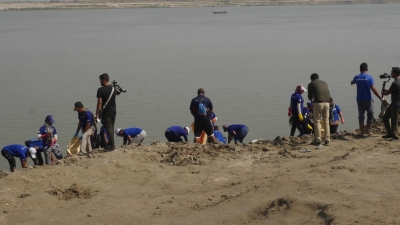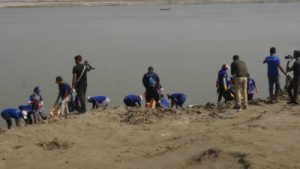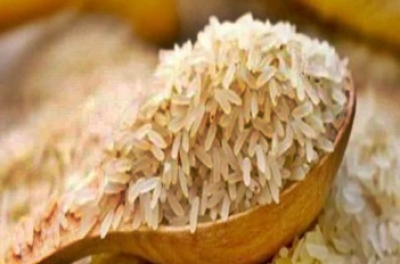 New Delhi, Feb 13 (IANS) Considering the need and spread of the Namami Gange programme, the government has approved Namami Gange Mission-II with a budgetary outlay of Rs 22,500 crore till 2026, including projects for existing liabilities (Rs 11,225 crore) and new projects/and interventions (Rs 11,275 crore).
New Delhi, Feb 13 (IANS) Considering the need and spread of the Namami Gange programme, the government has approved Namami Gange Mission-II with a budgetary outlay of Rs 22,500 crore till 2026, including projects for existing liabilities (Rs 11,225 crore) and new projects/and interventions (Rs 11,275 crore).
The Namami Gange programme was launched in June 2014 for a period up to March 31, 2021 to rejuvenate river Ganga and its tributaries with a budgetary outlay of Rs 20,000 crore.
A total of Rs 14,084.72 crore has been released by the government to the National Mission for Clean Ganga (NMCG) from FY 2014-15 till January 31, 2023, out of which Rs 13,607.18 crore has been released by the NMCG to state governments, state missions for clean Ganga and other agencies for implementation of projects related to Ganga rejuvenation.
According to a written reply by the Ministry of Jal Shakti in the Parliament on Monday, under Namami Gange programme, a comprehensive set of interventions such as wastewater treatment, solid waste management, river front management (ghats and crematoria development), e-flow, afforestation, biodiversity conservation and public participation etc. have been taken up for rejuvenation of river Ganga and its tributaries.
So far, till December 31, 2022, a total of 409 projects have been taken up at an estimated cost of Rs 32,912.40 crore, out of which 232 projects have been completed and made operational.
The ministry informed that majority of the projects pertain to creation of sewage infrastructure as untreated domestic or industrial wastewater is the main reason for pollution in the river.
A total of 177 sewerage infrastructure projects have been taken up with a cost of Rs 26,673.06 crore for creation and rehabilitation of 5,269.87 million litres per day (MLD) of sewage treatment plant (STP) capacity and laying of around 5,213.49 KM sewerage network.
Among these, 99 sewerage projects have been completed resulting in creation and rehabilitation of 2,043.05 MLD of STP capacity and laying of 4,260.95 km sewerage network. In order to sustain the continued operation of the sewage treatment infrastructure, hybrid annuity based PPP mode has also been adopted.
Under the Namami Gange Programme, the Central Pollution Control Board (CPCB) is carrying out studies for water quality assessment of River ganga at 97 locations in five main stem states through the respective state pollution control boards (SPCBs).
–IANS
kvm/arm










